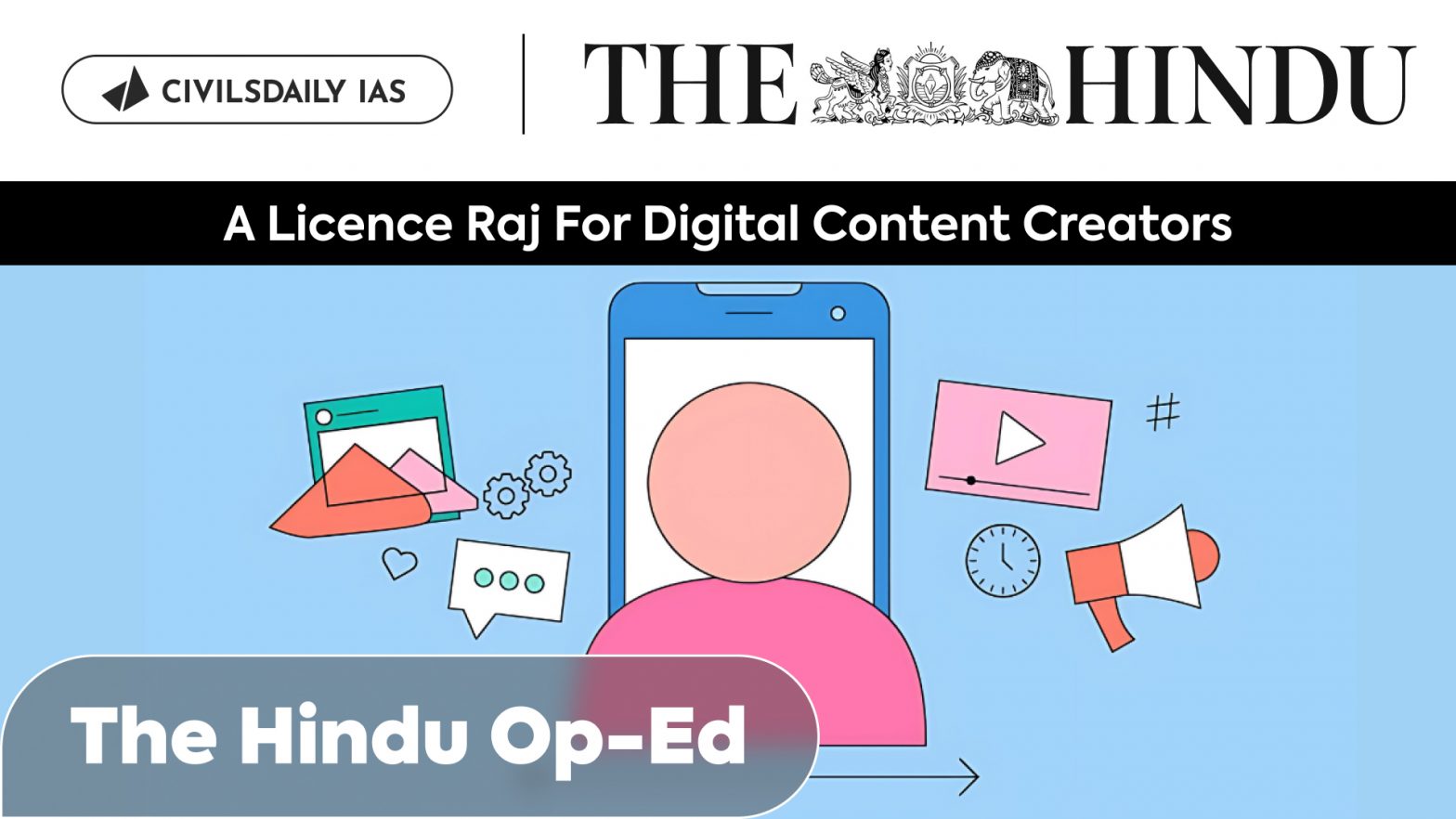| PYQ Relevance: Mains: Q1 Has digital illiteracy, particularly in rural areas, coupled with lack of Information and Communication Technology (ICT) accessibility hindered socio-economic development? Examine with justification. (UPSC IAS/2021) Q2 What do understand by the concept “freedom of speech and expression”? Does it cover hate speech also? Why do films in India stand on a slightly different plane from other forms of expression? Discuss. (UPSC IAS/2014) |
Note4Students:
Mains: Issues related to Broadcasting Regulation Bill, 2024;
Mentor comments: Could Dhruv Rathee and Ravish Kumar’s YouTube videos have swayed voter preferences in the 2024 general election? This question arises in the context of a Union government that anticipated a return to power with a larger majority but instead was re-elected as a coalition with a reduced mandate. Recognizing a threat to its authority, the government seeks to undermine digital creators through the Broadcasting Regulation Bill, 2024. Data from two CSDS-Lokniti surveys reveal that 29% of voters consume political content daily on digital platforms, suggesting a shift towards a “content election” where digital media increasingly challenges traditional television news.
Let’s learn!
__
Why in the News?
The Broadcasting Bill, 2024 exhibits clear characteristics of a digital authoritarianism initiative aimed at controlling online narratives.
| Recent changes Convergence of IT and broadcasting ministries: Ashwini Vaishnaw remains the Minister for Electronics and Information Technology (MeitY) and has also been given the Ministry of Information and Broadcasting (MIB) portfolio. This reflects a growing convergence and interest of these ministries in controlling digital content. |
Key highlights of the Bill
- Expanded Definition of Broadcasters: The Bill classifies individual commentators as “Digital News Broadcasters” and content creators as “OTT Broadcasters.”
- This allows the Ministry of Information and Broadcasting (MIB) to set and modify thresholds for subscribers or users, mandating registration for those who meet these criteria, thus significantly broadening government oversight over digital media.
- New Compliance Requirements: The Bill introduces additional compliance measures for online platforms, establishing a new safe harbor regime separate from the Information Technology Act, 2000.
- It enables the MIB to enforce censorship and require platforms like YouTube to implement specific compliance measures entities.
- Expanding legal powers for censorship: A formal legal basis for this censorial partnership was established through the IT Rules, 2021 which expanded MeitY’s powers, including a traceability mandate compromising end-to-end encryption.
- The rules also granted the MIB new powers to require registration and block digital news media and online entertainment streaming apps. The MIB has publicly disclosed enforcement action only when it aligns with nationalistic themes fitting its political interests.
Creation of an Autocratic Weapon for Digital Censorship
- Expansion of IT Rules: Following the inadequacies of the IT Rules, 2021, the Union Government expanded its powers twice in 2023, first by establishing Grievance Appellate Committees (GACs) to handle appeals regarding digital content and then by amending the IT Rules to allow the government to remove content deemed “fake, false, and misleading.“
- Broadcasting Services (Regulation) Bill, 2023: The introduction of this bill is seen as a significant step towards increased government control over digital content.
- If passed, it would require online creators, such as those on YouTube and Instagram, to register and operate under the Ministry of Information and Broadcasting (MIB), effectively granting the government unprecedented authority over digital expression.
- Concerns Over Transparency and Accountability: Critics argue that the Broadcasting Bill, 2023, and its subsequent version, the Broadcasting Services (Regulation) Bill, 2024, would enhance government powers while reducing transparency and accountability. This could lead to an erosion of fundamental rights, particularly freedom of expression.
- Secrecy and Lack of Public Access: The latest draft of the Broadcasting Bill, 2024, has not been made public, and access has been restricted to select stakeholders under stringent conditions. This secrecy contradicts the government’s own Pre-Legislative Consultation Policy, raising concerns about the democratic process and public participation in law-making.
Way forward:
- The government should adhere to its own Pre-Legislative Consultation Policy and make the latest draft of the Broadcasting Services (Regulation) Bill, 2024, publicly accessible to allow for meaningful public participation and scrutiny.
- Processes should be put in place to ensure transparency in the decision-making process of the Grievance Appellate Committees (GACs) and the enforcement actions taken by the Ministry of Information and Broadcasting (MIB).

